Penn has seen some of the nation's premier black female athletes come through its doors over the last 50 years.
The history of women’s athletics at Penn started in 1920s through intramural competitions organized by the Penn administration and the Women’s Athletic Association.
At first, sports competitions were dominated by affluent white women, as sports like basketball, field hockey, tennis, archery, baseball, horseback riding, riflery, and track were organized with limited resources.
Women’s varsity athletics were put on the back-burner after the 1920s due to the Great Depression and World War II. The movement for the inclusion of women picked up in the 1960s in tandem with the civil rights movement, as the Association for Intercollegiate Athletics for Women and the NCAA struggled for control over women’s athletics before the NCAA usurped control after the passage of Title IX.
In addition to the NCAA's disinterest in developing collegiate sports for women, black women encountered the additional barrier of racial biases in order to participate in college athletics.
The Red and Blue can boast of many formidable women who defied the odds to go down in Penn history as some of the greatest of all time.
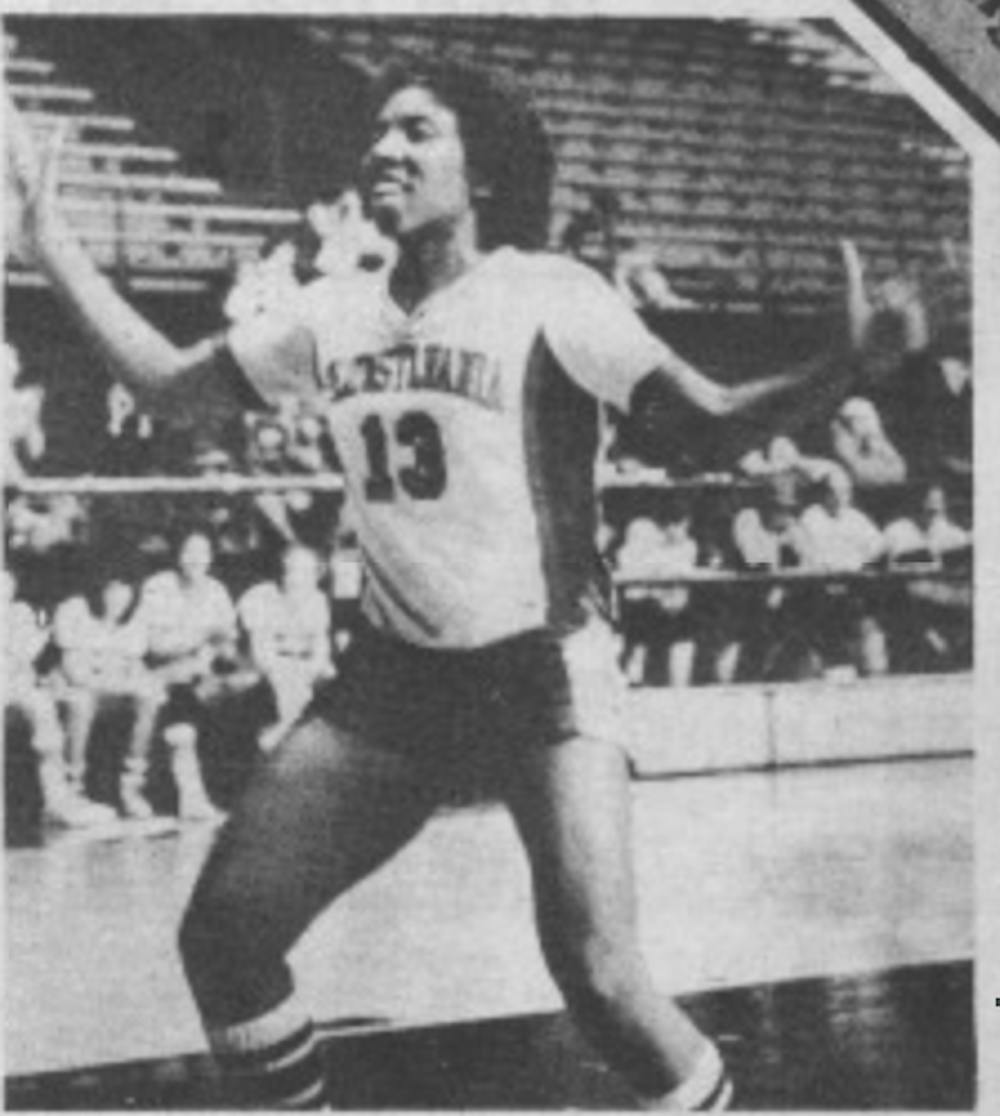
Penn women's basketball's Auretha Fleming (File Photo)
Auretha Fleming, a 1984 graduate, was the backbone of the women’s basketball team. As a freshman, she was the runner-up for Ivy League Rookie of the Year. As her career progressed, Fleming became co-captain and was awarded the prestigious Fathers’ Award, an award given to high-achieving scholar-athletes, in 1984.
That same year, she was awarded first-team All-Ivy honors, second-team Big 5 honors, and was named to the Women’s Sports Foundation All-Northeast Region team. She held program records for career field goal percentage (.446) and career steals (205) and helped Penn amass a 28-12 League record during her career. At that point, she held the program record in rebounds, with 749 to her name, and was the second-best scorer in team history, with 1,093 points on the board.
In February 1991, she was inducted into the Big 5 Hall of Fame.
In track, Penn has been home to some of the best female black athletes to dominate the national and international stage.
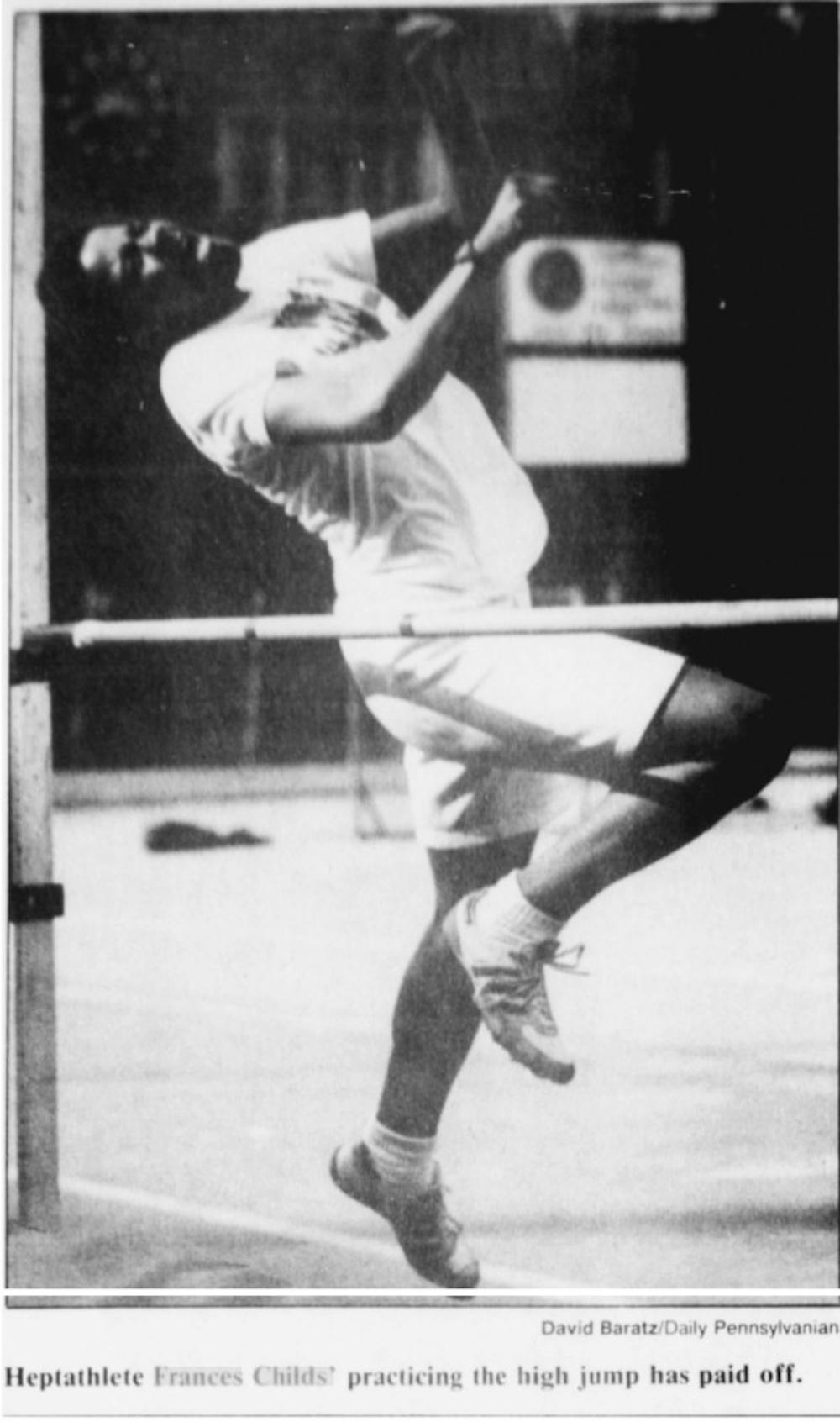
Penn track's Frances Childs (File Photo)
Frances Childs, a 1988 graduate, dominated the track during her four years with the Red and Blue. She finished her career as co-captain of the team and set school records in the pentathlon, heptathlon, outdoor long jump and indoor shuttle hurdle relay. Indoors, she won the individual Ivy pentathlon title three times and the long jump title four times. Outdoors, she was the the 100-meter hurdles champion once and the individual long jump and heptathlon champion twice.
In the long jump, she still holds the program record for the third-longest distance outdoors and the seventh-longest distance indoors, and in 1987 she was the League’s best long jumper. In 1988, Childs became the first Penn woman to win a Penn Relays championship event by winning the heptathlon with 4,886 points. Since then, Childs has returned to Franklin Field many times as a Relays official.
Christelle Williams, a 1989 graduate and one of Childs’ teammates, went down as one of the fastest women in Penn track and field history. Williams left the Red and Blue with seven individual and three relay program records.
She went undefeated in her outdoors 100m hurdles career and indoor 55m hurdles career, winning the events three and four times, respectively. Williams was also a one-time Eastern College Athletic Conference champion in the 55m dash and 100m hurdles, was named the team MVP for two consecutive years (1988 and 1989), and earned first-team All-Ivy League honors in the triple jump and 100m hurdles in 1988.
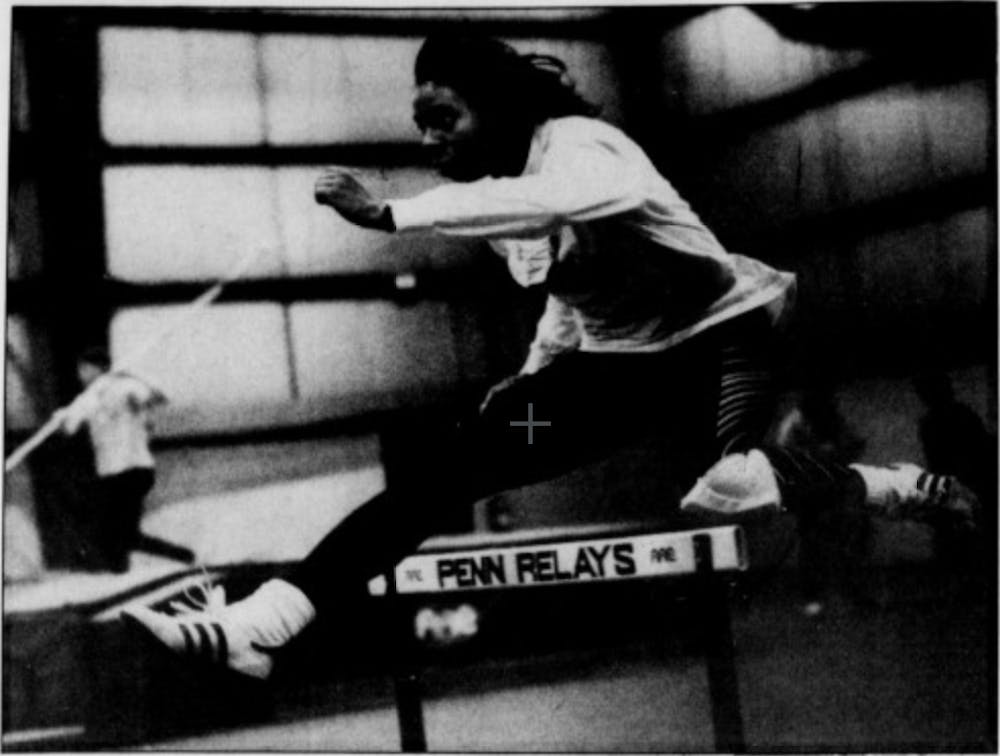
Penn track's Christelle Williams (File Photo)
During the 1986 outdoor season, she was the Ivy League champion in the 100, 200 and 100m hurdles, while in the 1988 indoor season, she achieved a three-peat by winning the 200, 55m hurdles, and triple jump. Williams won the indoor title in the 200 twice in her career and ended her career with a personal best in all of her events at the Outdoor Ivy Heptagonal Championships.
She still holds the fifth-fastest time in the 55m hurdles indoors and the second-fastest 100m hurdles time outdoors in Penn history.
Ruthlyn Greenfield-Webster, a 1992 Nursing graduate, ended a decorated Penn career with four individual triple jump Heps titles. Greenfield-Webster is still the second-longest indoor and outdoor long jumper in program history. After graduation, she turned down an invitation to compete at the 1992 U.S. Olympic Trials even though she was ranked No. 20 in the nation for triple jump as a result of recurring hamstring injuries and a desire to pursue her nursing career.
For Greenfield-Webster, competing at Franklin Field and attending all but two editions of the Penn Relays since high school was the pinnacle of her career.
Greenfield-Webster picked up track again 14 years after “retiring” and won the gold medal in women’s triple jump in the 40-44 age group at the 2013 Masters Track and Field World Championships in Brazil, jumping through a torn right meniscus. A full-time nurse who is also chasing a second chance on the track, Greenfield-Webster makes her way back to Franklin Field to compete in and watch Penn Relays and mentor young runners.
Depending on where they were brought up, current athletes had different takes on how their identities shape their experience at Penn.
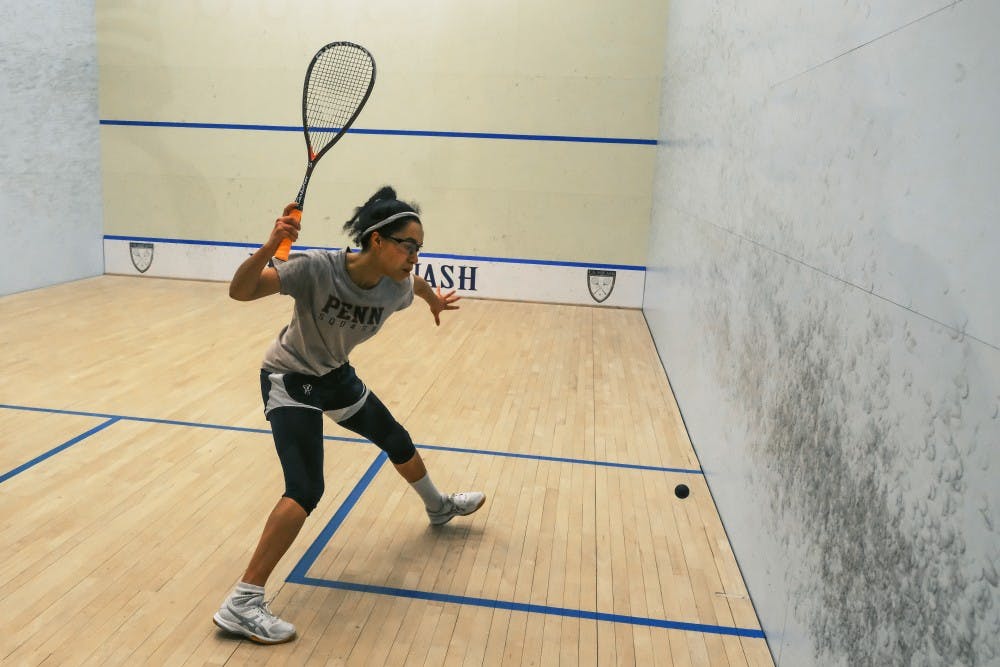
Penn squash's Jess Davis
Squash junior Jess Davis, a native of Manchester, England, believes that the different attitudes towards race in Europe and the U.S. have affected her identity differently.
“In the U.S., the divide between who plays squash and who doesn’t is really obvious, whereas at home, anyone can pick up squash, as it doesn’t have the same elitist connotation,” Davis said. “I may not be consciously aware of my own identity differences, but you can tell what demographics the game attracts by taking a look at what universities are highly ranked in squash. That makes it obvious that we need to work on accessibility.”
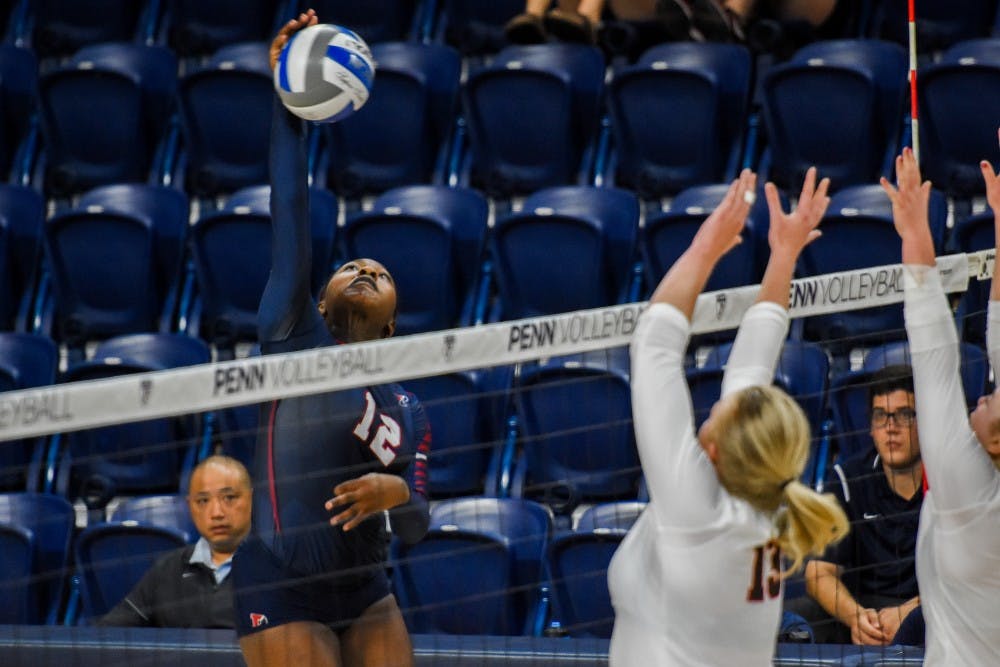
Penn volleyball's Raven Sulaimon
Volleyball sophomore Raven Sulaimon, who is also a Daily Pennsylvanian staffer, recollected a comment one of her African-American coaches made to her.
“You have to work twice as hard in order to establish that you can jump high and run fast because you worked for it, not because you’re black,” Sulaimon said. “I faced those comments in high school back in Houston, where growing up, it would be a big deal if there were three or four black girls on the team.
“Our team at Penn has been fairly diverse. I looked up to [senior] Taylor Cooper because I could see myself in her, but I’ve found good people regardless of background, and that is the thing that holds us together."
Senior soccer defender and captain Cami Nwokedi, the 2018 Ivy League Defensive Player of the Year, recounted incidents involving Ivy League soccer commentators as an example of the underlying bias that still exists today.
“My dad was watching the stream of one of our matches and told me how the commentators interchanged [senior midfielder] Sasha Stephens and I, even though I play in the back and she plays in the front, regularly,” Nwokedi said. “We have different numbers on our back, they have our rosters in front of them. Just because we are of the same color and have the same hairstyles should not be an excuse for not doing your research properly when you have every chance to do so.”
Nwokedi was also very forthcoming about her Penn experience and how it links to her identity.
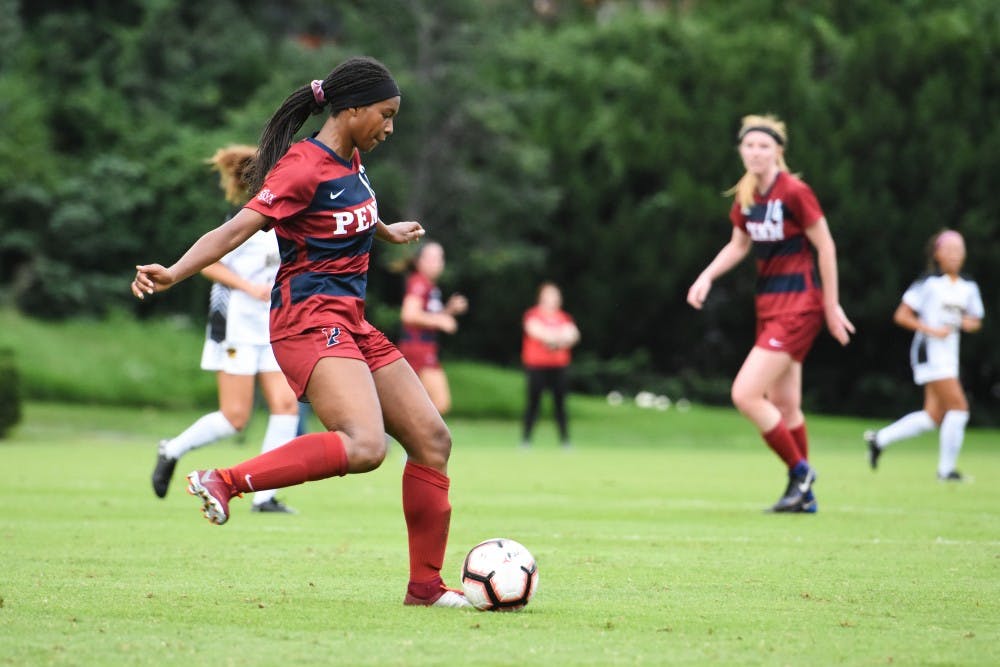
Penn soccer's Cami Nwokedi
“Coming to Penn from Southern California was a huge difference. Our team was much more diverse than any other team I had played on, and I had multiple role models who looked like me to look up to,” she said. “Our team is obviously full of amazing girls who are accepting and inclusive, but you just form a more natural connection with other black athletes due to shared experiences and backgrounds that you’ve had in the past.”
That diversity contributes immensely to athletics at Penn and will continue to do so for years to come.
This is Part II of a series on black athletes at Penn. Part I can be found here.
The Daily Pennsylvanian is an independent, student-run newspaper. Please consider making a donation to support the coverage that shapes the University. Your generosity ensures a future of strong journalism at Penn.
Donate





Most Read
More Like This